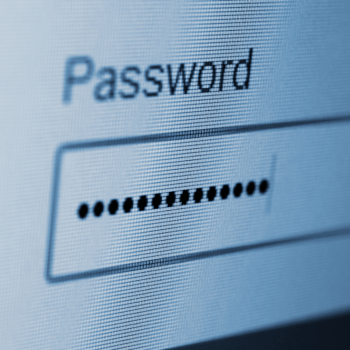Do you save passwords in your browser? Understand why this is a bad security practice
 Have you ever wondered if it's safe to save your credentials, including your password, in your favorite browser? It’s often thought of as a practical way to save time.
Have you ever wondered if it's safe to save your credentials, including your password, in your favorite browser? It’s often thought of as a practical way to save time.
After all, it's much more convenient not to have to type in your username and password every time you want to access a particular website, right? But... did you know that this practice can put your security and privacy at risk?
Here are some reasons not to save your passwords in your browser!
Why not save passwords and other information in browsers?
1. Risk of data theft
No software is totally immune to vulnerabilities. Even the most popular and reliable browsers can have security flaws. This means that if a browser is compromised through security vulnerabilities, all the information stored there will be accessible to attackers. The impact of having your online accounts invaded and your personal information leaked or used to commit new crimes is enormous.
2. Threat of physical access
If you save your passwords in your browser, all this information is within reach of anyone who has physical access to your computer, smartphone or tablet.
This includes passwords for social networks, bank accounts and medical consultation platforms. Once a criminal has access to this data, the consequences can be disastrous.
3. Account hijacking
Certain browsers store and link all credentials linked to an account (email, for example) for the sake of convenience.
If a cybercriminal gains access to this account, they will inevitably also gain access to all the information saved in the browser.
Imagine the damage this could cause! Someone could use your account in an online store and use your credit card number, which has also been saved, to make improper purchases in your name. Or even use some of your registration information, like a personal tax number, for identity fraud.
Risks for companies
Within a business context, saving passwords and other information in browsers can also carry significant risks.
After all, if a cybercriminal gets hold of an employee's passwords, they can access corporate systems to steal an array of information, from the personal details of employees, clients and partners to credit card numbers and bank accounts.
How to protect your passwords and other information
The best way to store your passwords and other information is to use a password manager! A password manager is nothing more than a program that securely encrypts and stores your data.
A good password manager usually also offers other advantages, such as:
-
Suggesting strong, random combinations for each site, increasing your security.
-
Alerting you to a possible leak of your passwords, so you can act quickly and avoid fraud.
-
Synchronize your passwords between different devices, making them easier to access.
There are several password managers available on the market, some free and others paid for. You can choose the one that best suits your needs and preferences.
In your daily work routine, be sure to only store your credentials using the password manager indicated by your company's information security team!
